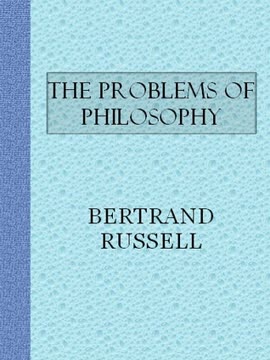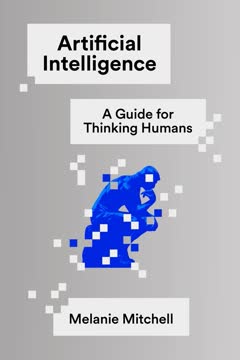Key Takeaways
1. Ethics is about universal principles, not subjective opinions
Ethics takes a universal point of view.
Universal consideration. Ethics requires us to go beyond our personal preferences and consider the interests of all affected by our actions. This universal perspective forms the basis for utilitarianism, which seeks to maximize overall well-being. While different ethical frameworks exist, they share the goal of finding principles that can be universally applied.
Reason over intuition. Ethical reasoning involves critically examining our moral intuitions and cultural norms. We must be willing to follow logical arguments to their conclusions, even if they challenge conventional wisdom. This approach allows us to develop more consistent and defensible ethical positions.
Key aspects of ethical reasoning:
- Impartiality
- Logical consistency
- Consideration of consequences
- Willingness to revise beliefs
2. Equality extends beyond humans to all sentient beings
The principle of equal consideration of interests does not allow major interests to be sacrificed for minor interests.
Expanding the circle. Just as we've expanded our moral consideration from tribe to nation to all of humanity, we must now extend it to all sentient beings capable of suffering. This doesn't mean treating all beings identically, but giving equal consideration to comparable interests.
Implications for animals. Recognizing animal sentience requires us to radically rethink our treatment of animals, especially in factory farming and animal experimentation. While there may be cases where animal use is justified by greater human benefit, much of our current exploitation of animals is driven by relatively trivial human interests.
Key points on animal equality:
- Capacity for suffering is the key moral consideration
- Species membership alone is not ethically relevant
- We must weigh animal interests against human interests
- Much current animal use fails this ethical test
3. The sanctity of human life is not absolute; quality of life matters
There is no rule that says that a potential X has the same value as an X or has all the rights of an X.
Beyond species membership. The traditional Western view that all human life is sacred and inviolable is difficult to defend philosophically. A more nuanced view considers factors like self-awareness, capacity for meaningful experiences, and quality of life.
Personhood, not human-ness. What matters morally is not biological humanity but personhood - the possession of certain cognitive capacities like self-awareness and ability to plan for the future. Some humans may lack these capacities while some animals may possess them. This has significant implications for issues like abortion, euthanasia, and animal rights.
Factors to consider in valuing life:
- Self-awareness
- Capacity for pleasure and pain
- Ability to have preferences about the future
- Quality of life / degree of suffering
4. Abortion and euthanasia can be ethically justified in certain circumstances
If a being suffers, there can be no moral justification for refusing to take that suffering into consideration.
Early-stage abortion. Early fetuses lack the cognitive capacities that give adult humans special moral status. Combined with the significant interests of the pregnant woman, this makes early-stage abortion ethically permissible in many cases.
End-of-life choices. For patients suffering from terminal illnesses or severely diminished quality of life, voluntary euthanasia can be an ethical choice that respects autonomy and reduces suffering. Safeguards are needed, but a blanket prohibition is hard to justify.
Key considerations for abortion and euthanasia:
- Cognitive capacities of the fetus/patient
- Interests and autonomy of the woman/patient
- Degree of suffering involved
- Potential for future quality of life
5. We have a moral obligation to help those in extreme poverty
If it is in our power to prevent something bad from happening, without thereby sacrificing anything nearly as important, we ought, morally, to do it.
The argument for aid. Given the extreme suffering caused by global poverty and our ability to help at relatively little cost to ourselves, we have a strong moral obligation to assist. This goes beyond conventional views of charity as optional.
Effective giving. To maximize impact, we should focus on the most effective interventions and organizations. Evidence-based evaluation of charities can help ensure our donations do the most good possible.
Ways to help fight global poverty:
- Donate to effective charities
- Support political policies that address poverty
- Make ethical consumer choices
- Raise awareness and encourage others to help
6. Climate change is an urgent ethical issue requiring immediate action
We are culpable for the harm we are doing to them.
Catastrophic threat. Climate change poses an existential threat to human civilization and countless other species. The scale of potential harm creates an urgent ethical imperative to act.
Responsibility of the affluent. Those in wealthy countries bear particular responsibility, both because of historical emissions and greater capacity to act. Individual and collective action are both needed.
Key climate change actions:
- Reduce personal carbon footprint
- Support climate-friendly policies and politicians
- Pressure businesses and institutions to act
- Prepare for climate impacts and assist vulnerable populations
7. Environmental preservation has intrinsic value beyond human interests
An environmental ethic leads us to re-assess our notion of extravagance.
Beyond anthropocentrism. While human interests provide strong reasons for environmental protection, we should also consider the intrinsic value of nature itself. This includes the value of wilderness, biodiversity, and the flourishing of ecosystems.
Reshaping values. An environmental ethic requires rethinking our relationship with nature and our notions of progress and the good life. It emphasizes simpler living, appreciation of natural beauty, and harmony with ecological systems.
Elements of an environmental ethic:
- Respect for nature's intrinsic value
- Long-term thinking considering future generations
- Emphasis on quality of life over material consumption
- Recognition of humanity's dependence on ecological health
8. Civil disobedience can be justified when laws protect unethical practices
There are moments in a nation's – and a planet's – history when it may be necessary for some to break the law in order to bear witness to an evil, bring it to wider attention, and push for its correction.
Limits of legal obligation. While there are good reasons to generally obey the law, this obligation is not absolute. When laws protect serious ethical wrongs, civil disobedience can be justified.
Responsible resistance. Effective civil disobedience should be nonviolent, undertaken as a last resort, and with willingness to accept legal consequences. Its goal is to draw attention to injustice and catalyze change through moral witness.
Guidelines for ethical civil disobedience:
- Exhaust legal channels first
- Choose nonviolent methods
- Be willing to accept punishment
- Have a clear and ethical goal
- Consider potential negative consequences
Last updated:
FAQ
What's Practical Ethics by Peter Singer about?
- Focus on Applied Ethics: The book explores the application of ethical principles to real-world issues, such as poverty, animal rights, and climate change.
- Utilitarian Framework: Singer employs a utilitarian approach, emphasizing outcomes and the well-being of all sentient beings.
- Interconnected Ethical Issues: It highlights the interconnectedness of ethical considerations across domains like environmental ethics and social justice.
Why should I read Practical Ethics by Peter Singer?
- Influential Work: The book has been a classic in applied ethics for over thirty years, praised for its clarity and thought-provoking arguments.
- Relevance to Modern Issues: It addresses contemporary ethical challenges, providing insights into pressing moral questions of our time.
- Encourages Critical Thinking: Singer's arguments challenge readers to reflect on their values and the implications of their choices.
What are the key takeaways of Practical Ethics by Peter Singer?
- Equal Consideration of Interests: All beings capable of suffering deserve moral consideration, regardless of species.
- Moral Responsibility: Emphasizes individual moral responsibility, urging readers to consider the impact of their actions on others.
- Altruism and Justice: Advocates for altruism and justice, particularly in addressing global poverty and climate change.
What are the best quotes from Practical Ethics by Peter Singer and what do they mean?
- "Can they suffer?": Highlights suffering as the key criterion for moral consideration, extending beyond humans to animals.
- "You broke it, you fix it.": Emphasizes historical responsibility, particularly in addressing climate change.
- "We should not be passive spectators.": Encourages active engagement in ethical issues, advocating for change.
How does Peter Singer define ethics in Practical Ethics?
- Beyond Rules: Ethics is not just a set of prohibitions but a framework for decision-making considering consequences.
- Independent of Religion: Ethics can be understood independently of religious beliefs, grounded in rational thought and empathy.
- Practical Application: Focuses on applying ethical principles to real-life situations, encouraging critical moral choices.
What is the principle of equal consideration of interests in Practical Ethics by Peter Singer?
- Core Ethical Principle: Asserts that the interests of all beings capable of suffering should be considered equally.
- Challenges Speciesism: This principle challenges views that prioritize human interests over those of animals.
- Real-World Application: Applied to ethical dilemmas like animal rights and global poverty, urging reconsideration of moral responsibilities.
How does Practical Ethics by Peter Singer address animal rights?
- Critique of Speciesism: Argues against the belief that human interests are inherently more valuable than those of nonhuman animals.
- Capacity for Suffering: Emphasizes that the ability to suffer is the key criterion for moral consideration.
- Practical Recommendations: Encourages adopting a vegan lifestyle and supporting humane treatment of animals.
What ethical issues does Practical Ethics by Peter Singer discuss regarding climate change?
- Moral Responsibility: Climate change is a significant ethical issue affecting future generations and vulnerable populations.
- Individual Actions Matter: Individuals have a moral obligation to reduce their carbon footprint and make environmentally conscious choices.
- Global Perspective: Calls for a collective response, considering the broader implications of actions on the planet.
How does Practical Ethics by Peter Singer approach the topic of euthanasia?
- Complex Ethical Dilemma: Weighs the rights of individuals to choose death against societal values regarding the sanctity of life.
- Quality of Life Considerations: Argues that quality of life and suffering should be central to discussions about euthanasia.
- Legal and Moral Frameworks: Advocates for legal frameworks allowing voluntary euthanasia, emphasizing autonomy and choice.
How does Practical Ethics by Peter Singer approach global poverty?
- Moral Obligation to Assist: Affluent individuals have a moral obligation to assist those living in extreme poverty.
- Effective Altruism: Promotes effective altruism, encouraging impactful charitable contributions.
- Critique of Apathy: Critiques apathy towards global poverty, urging recognition of the capacity to make a difference.
What is the replaceability view discussed in Practical Ethics by Peter Singer?
- Concept of Replaceability: Posits that lives of beings who do not yet exist can be compared to those who do.
- Ethical Implications: Suggests preventing beings with poor quality of life from coming into existence is a moral obligation.
- Challenges Traditional Notions: Encourages considering potential lives that could be created or prevented based on choices.
How does Practical Ethics by Peter Singer address the concept of justice?
- Common but Differentiated Responsibilities: Different nations have varying responsibilities based on historical contributions to global issues.
- Justice as Fairness: Advocates for equitable treatment of all individuals, extending justice beyond humans to animals and future generations.
- Ethical Frameworks: Explores utilitarianism and rights-based approaches to understand justice, considering broader societal and environmental impacts.
Review Summary
Practical Ethics receives mostly positive reviews for its clear arguments on controversial ethical topics from a utilitarian perspective. Readers appreciate Singer's logical approach and thought-provoking ideas, even when disagreeing with some conclusions. Many find it accessible and valuable for examining moral beliefs. Critics argue some arguments lead to troubling conclusions, particularly regarding euthanasia for disabled infants. Overall, the book is praised for its rigorous ethical reasoning and ability to challenge readers' preconceptions.
Similar Books








Download PDF
Download EPUB
.epub digital book format is ideal for reading ebooks on phones, tablets, and e-readers.













